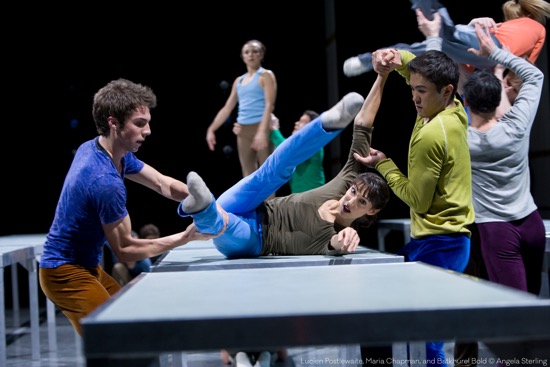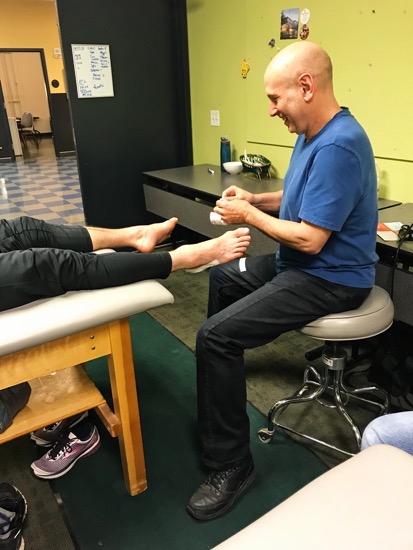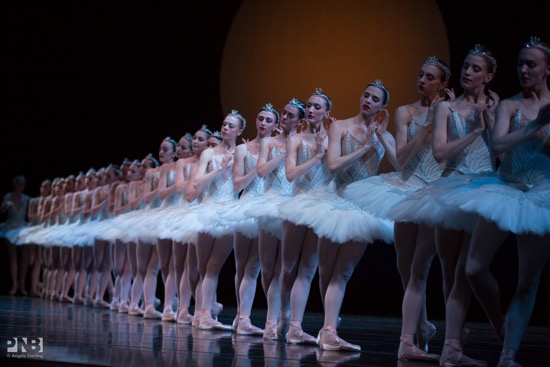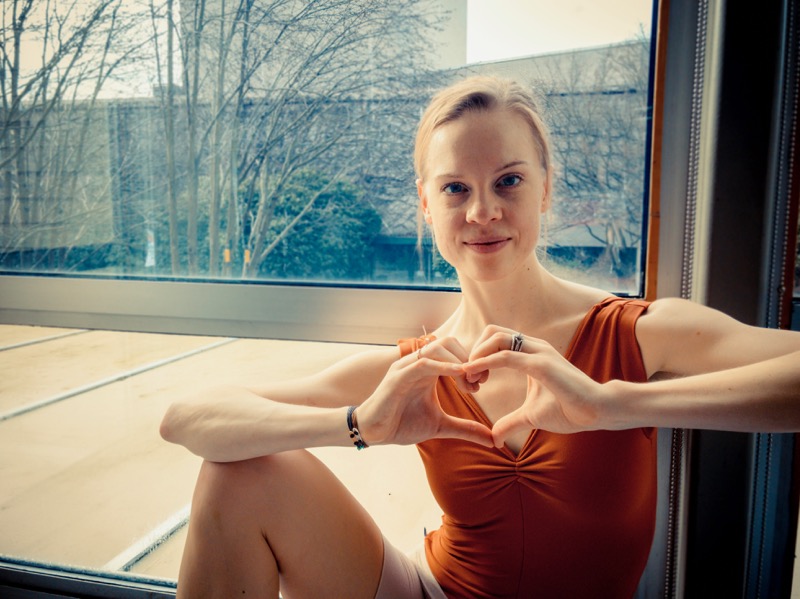
by Emma Love Suddarth
Emma LOVE? “Yeah I suppose it is a pretty great last name—thanks!” I can’t count the number of exclamations at the uniqueness of that last name. I can’t keep track of the number of love-themed gifts I received from secret santas over the years—not to mention the number of love-related puns I heard from friends, assuming they were the first. I never thought anything of it. It’s just a word after all, right? Saying goodbye to it as a last name five years ago (not to worry, it’s still there—just sandwiched as the middle now) made me think more on the word itself. As irony would have it, the very act of saying goodbye went hand-in-hand with the true weight of the word. It was an act of love.
More often than not, love is thought of through a fairytale-lens. Here at PNB we are currently deep in rehearsals for the iconic classic Sleeping Beauty—wicked fairies, sleeping kingdoms, flying nymphs, and one brave Price Florimund. It is only by true love’s kiss that he is able to defeat the wicked Carabosse and awaken the beautiful princess Aurora. Love is all-conquering. Even where the lovers might not “win”—Giselle, Swan Lake, Romeo and Juliet, to name a few—the love itself transpired effortlessly. According to many iconic movies, books, and songs, love is just a force that we are swept up into. It happens to us, whether or not we are truly aware.
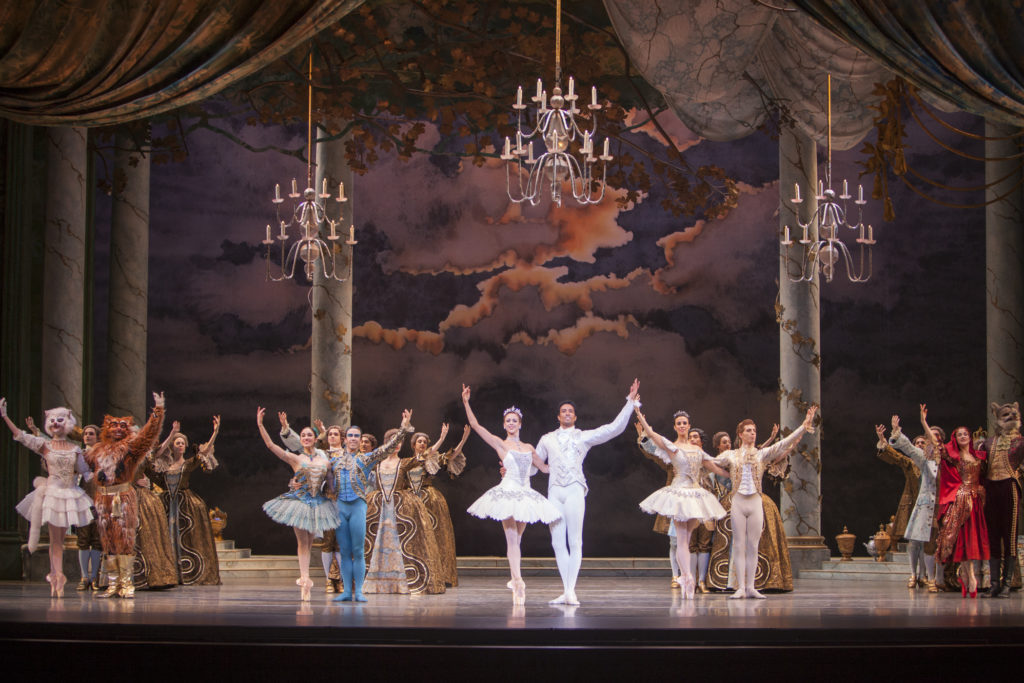
Yes, love as an initial happening—i.e. “love at first sight”—may come about without direct intent. However, love in a deeper sense, as a continuous, ongoing force, is a decision. It requires participation. Think about anything you’ve ever loved. Pets? It might be hard to love them when they’re chewing up your favorite shoes or shredding your expensive new rug. But you choose to continue to. Ballet—or any other passion? It might be hard on those days when you just want to give up because you can’t execute a single step correctly. But you choose not to. A significant other? It might be hard when he or she makes you more frustrated than ever. But when you love that person in the fullest sense of the word—in a way that requires you as an active member—you continue to.
Along with the decision to continue something, comes the effort to maintain it. Relationships require work; passions require work; love requires work. For love to have moments of effortlessness, effort must be put in. Oxymoron much? One tangible metaphor to illustrate this idea is in ballet itself. As a dancer, think about the most special moments you’ve had on stage. I’ll speak candidly from a personal experience as the Siren in George Balanchine’s Prodigal Son. In one of the more iconic moments, slowly rising from seated atop the head of my coworker Matt—the son—to standing against the front of his shins, my feet not even touching the floor, I felt love; love of the character, love of the story, love of the music, love of ballet. That love felt effortless. However, thinking back on the process, the love wasn’t always natural. There was the constant pain of a golf ball-sized blister encompassing my entire heel. There were the numerous tears from rehearsals that felt like flops. There was the sheer exhaustion from hours and weeks of intense repetition. There was a continuous trail of blood, sweat, and tears that led to that point. When people say, “love is not easy,” I believe this is what they mean. More often than not, some of our most cherished moments experience a similar journey. That’s what makes them worth it. That’s what makes them precious.
Ultimately, we must allow for love. One of my favorite ideas about love comes from a C.S. Lewis quote, and addresses this very thought: “To love at all is to be vulnerable.” While it might seem initially defeating, vulnerability does not have to be a negative. Asking us to be vulnerable means asking us to be open—to be whole-hearted participants. In loving a person, we are opening ourselves up by placing our hearts in their hands, allowing them to play an equal part in the journey of that relationship. In loving a passion, we are opening ourselves up to critique and frustration, because through those can we learn to experience it at a deeper level and find greater appreciation for it. This “vulnerability” lays the foundation for growth, for depth, for richer love.
Watching PNB tackle ten intense studio runs of Sleeping Beauty this week brought many different forms of love to light. None of them were without intention. I watched ballet masters praise tired dancers at the end of the week for a job well done. I saw Auroras push through nerves, pain, even illness. I watched boyfriends and husbands pass snacks to their exhausted fairy-friend-nymph-etc. at every five-minute break. No, love is not easy. But it’s certainly beautiful.
And it’s certainly worth it.
See Pacific Northwest Ballet perform The Sleeping Beauty! Performances run from February 1st to February 10th.

Contributor Emma Love Suddarth is from Wichita, Kansas. She studied with Sharon Rogers and on scholarship at Pacific Northwest Ballet School, and attended summer courses at Central Pennsylvania Youth Ballet, Ballet Academy East, and Pacific Northwest Ballet School. She was first recipient of the Flemming Halby Exchange with the Royal Danish Ballet School and was also a 2004 and 2005 recipient of a Kansas Cultural Trust Grant. She joined Pacific Northwest Ballet as an apprentice in 2008 and was promoted to corps de ballet in 2009.
While at PNB, she has performed featured roles in works by George Balanchine, Peter Boal, David Dawson, Ulysses Dove, William Forsythe, Jiri Kylian, Mark Morris, Margaret Mullin, Crystal Pite, Alexei Ratmansky, Kent Stowell, Susan Stroman, and Price Suddarth. Some of her favorites include the Siren in Balanchine’s The Prodigal Son, Jiri Kylian’s Petit Mort, David Dawson’s A Million Kisses to My Skin, William Forsythe’s New Suite, and Price Suddarth’s Signature.
She is a contributor to Pacific Northwest Ballet’s blog. She is married to fellow PNB dancer Price Suddarth.





